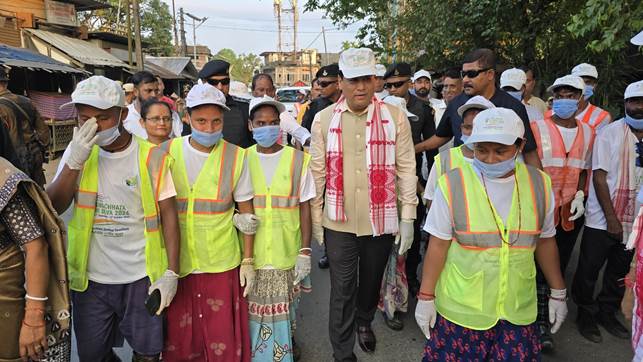In a powerful and thought-provoking address at the release of the book AI on Trial, Vice-President Jagdeep Dhankhar voiced serious concerns about the unchecked growth of artificial intelligence, warning of the stark choice before us—between a digital dystopia where humans are ruled by algorithms, and a humane society where technology remains a servant of the people.
 Speaking at the Vice-President’s Enclave in New Delhi, Shri Dhankhar stressed the urgent need for a balanced approach to AI regulation—one that ensures public safety and democratic accountability without stifling innovation. “Regulating artificial intelligence is daunting, frightening, but imperative,” he noted. Comparing overregulation to “over-disciplining a child,” he advocated for smart oversight that encourages innovation while protecting society from the darker side of AI.
Speaking at the Vice-President’s Enclave in New Delhi, Shri Dhankhar stressed the urgent need for a balanced approach to AI regulation—one that ensures public safety and democratic accountability without stifling innovation. “Regulating artificial intelligence is daunting, frightening, but imperative,” he noted. Comparing overregulation to “over-disciplining a child,” he advocated for smart oversight that encourages innovation while protecting society from the darker side of AI.
The Vice-President called for the establishment of an independent yet accountable National Artificial Intelligence Authority. Such a body, he said, should include representation from government, academia, civil society, and industry, acting as a dynamic think tank to guide AI policy. He emphasized that AI regulation should be “a scaffold, not a cage,” urging a sector-specific, risk-based approach. “The impact of AI on ordinary citizens must be at the heart of our regulatory framework,” he insisted, warning that individuals should not be left helpless in the face of algorithmic decisions that affect their livelihoods, dignity, and freedom.
In a deeply human appeal, Shri Dhankhar highlighted the need for enforceable rights in the age of AI—such as the right to explanation, the right to contest automated decisions, and the right to opt out of algorithmic processing altogether. “Decisions are automated. How to contest them, we are not aware,” he lamented, pointing to the urgent need for systems that offer built-in protections for every citizen.
Drawing a sobering parallel, he likened AI to nuclear power—capable of lighting homes and powering industries, but also capable of catastrophic destruction if left unregulated. In an era of deepfakes, disinformation, and algorithmic manipulation, he warned of the real dangers posed by an unbridled AI ecosystem, cautioning against its potential to empower “wokeism,” the “Deep State,” and other harmful forces.
He also drew attention to the displacement of human jobs by AI, urging heavy investment in education, vocational training, and digital literacy—particularly for those on the margins of society. “AI has come to your home, to your office, sometimes doing jobs better than humans. Are we risking livelihoods? In some cases, yes,” he observed, stressing the importance of equipping the vulnerable with the skills they need to thrive in an AI-driven world.
Shri Dhankhar made a compelling case for asserting India’s cyber sovereignty, arguing that as with traditional sovereignty, it must be protected—but in close alignment with global standards. “There can be no standalone activity. We need global convergence and a rule-based order in the AI domain,” he said.
On the legal front, the Vice-President expressed concern that AI is pushing the boundaries of jurisprudence, especially with its lack of transparency. “When decisions are carried out by autonomous systems, traditional concepts like liability and personhood come under pressure,” he said, warning that judicial trust is at risk when AI systems operate without clear accountability. “Justice cannot be robotised,” he declared. “There is no substitute for the discerning human mind.”
Reinforcing the importance of meaningful consent in the digital age, Shri Dhankhar pointed out that many users, faced with long and obscure terms of service, agree to conditions without true understanding. “A consent that is not free is no consent in law,” he asserted, calling for stronger protections around anonymisation, data minimisation, and purpose limitation.
The event was also graced by the presence of Rajya Sabha MPs Smt. Sudha Murthy, Shri Sujeet Kumar (author of the book), and Smt. Rekha Sharma, along with Shri Sunil Kumar Gupta, Secretary to the Vice-President, and other dignitaries.
At a time when AI is rapidly redefining every aspect of human life, Shri Dhankhar’s address served as both a wake-up call and a compassionate reminder: the future of AI must be shaped not just by technological progress, but by our collective commitment to justice, dignity, and humanity.




